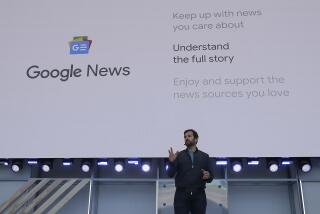ORANGE COUNTY VOICES : Public to Pay Price for Unread Legislation : Congress passed the transportation bill without proper discussion. People who’ll shell out $151 billion for it are the ultimate losers.
- Share via
Reflecting upon his first term in the House of Commons, Winston Churchill called it “an honor to take part in the deliberations of this famous assembly, which for centuries had guided England through numberless perils.”
Unfortunately, from the vantage point of a new member of the U.S. Congress, the proceedings of our body do not inspire the same awe. Rather, informed debate and factual exposition have been replaced by misinformation and chaos.
There is no better example of the collapse of Congress as a legitimate lawmaking institution than the $151-billion, six-year transportation bill, which passed the House in the wee hours Wednesday morning.
The bill is the product of the Public Works and Transportation Committee, on which I have served since 1988.
To my surprise--and that of most other committee members--the committee never did draft or even seriously debate the landmark transportation bill. Instead, committee staff did, with only the four most senior congressmen involved. Not until last Oct. 15, did members of the committee get a glimpse at a bill; by then, it totaled hundreds of pages--and we were asked to vote for it the very same day.
Obviously, no member could read it. We did learn, however, that the bill included 472 special highway “demonstration” projects costing over $40 billion. It also authorized an increased federal gas tax to 11.6 cents per gallon through fiscal 1999.
For these reasons, I voted against the bill--following the useful rule of not signing off on anything legal that one hasn’t read--but others on the committee were willing to move the transportation bill straight to the House floor.
During the House-Senate conference that followed the bill’s passage in the House, committee members were again kept in the dark. Little information about how the bill was being radically changed was transmitted to the press or to lawmakers. Seemingly by design, details of the transportation bill remained unresolved into the last day of the session, which adjourned hours before Thanksgiving.
Here is a chronology of the last hours before the final vote on the bill:
Tuesday, 2 p.m.: Public Works and Transportation Committee meets to announce “agreement” has been reached to resolve House and Senate versions of the bill. But the new bill itself is not available.
10 p.m.: Department of Transportation officials, who have been analyzing the bill, state that they have “no idea” about funding levels for “demonstration” projects.
11:30 p.m.: Public Works Committee reports that the bill is not available.
Wednesday, 2 a.m.: Rules Committee meets to discuss transportation bill. The bill itself, however, is still not available.
4 a.m.: Debate begins on the House floor. The bill is still not available.
4:55 a.m.: Final bill, over 1,000 typewritten pages, arrives in the midst of debate. No copies are available.
6 a.m.: Without a single member having read it, House votes 372 to 47 in favor of the bill.
Of course, the “debate” on the bill was devoid of content. The sponsors of the bill spoke in abstract and elliptical terms, calling it “a blueprint for the next century.” No one could rise in credible opposition to the bill because no one had read it.
One day after the vote, the bill was finally printed in the Congressional Record. Thereafter, bit by bit, information has been accumulating about its actual contents.
For instance, we have learned that the number of special “demonstration” projects was increased to 529, and their cost is well over $20 billion. Not surprisingly, the key House and Senate lawmakers made out the best in the scramble for these special projects.
We have learned that Orange County, on the other hand, is seriously shortchanged by the “demonstration” projects. This is so because their costs are skimmed off the top of the Highway Trust Fund, before the formula allocation to the states. In fact, according to the Federal Highway Administration, these wasteful, pork-barrel spending projects will end up costing Orange County over $1 billion of our federal transportation taxes that we could otherwise have received.
And we have learned that the new bill extends last year’s 2.5 cents per gallon gasoline tax increase for five more years.
The Urban Mass Transit Administration, as of this writing, still hasn’t been able to determine what the cost of nearly half the transit projects will be.
As Churchill appreciated during his own legislative days, good public policy and sound decision-making depend upon educated and enlightened debate; decisions made in the darkness of ignorance are bound to be foolish. When the U.S. Congress is willing to vote for a $151-billion spending bill it hasn’t even read, it’s no wonder that the American people aren’t impressed.
More to Read
Sign up for Essential California
The most important California stories and recommendations in your inbox every morning.
You may occasionally receive promotional content from the Los Angeles Times.













